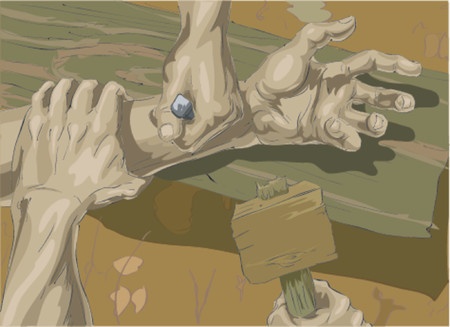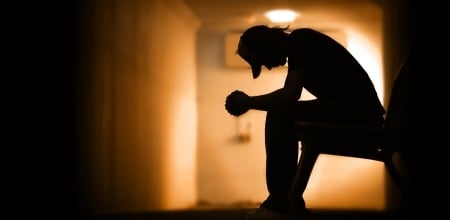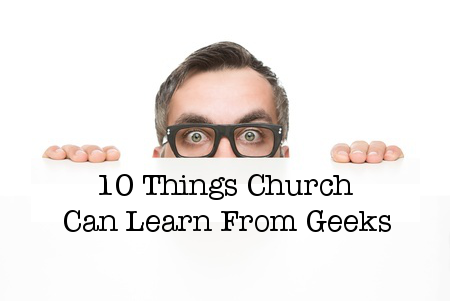
The Easter story should leave us all quivering in our boots.
It should also inspire us to acts of great love that might put us at great personal risk.
To truly grasp the terrifying implications of Easter in contemporary society, let’s first look at the “historical” realities of Holy Week and Easter.
Jesus’ entry into Jerusalem — humbly riding into town, bouncing around on the back of a previously unridden ass, people gathered to greet him singing and shouting, “Blessed is the King who comes in the name of the Lord,” signals to us that Easter is going to be a story about confronting The Powers That Be.
In stark contrast, the actual ruler of the region, Prefect Pontius Pilate, (basically the Governor) would have made quite a different entrance. As Rome’s official authority, he would have paraded through the front of the city’s gates on a mighty steed while surrounded by Roman soldiers.
The confrontation of The Powers at Easter begins with a quiet “announcement.”
It happens as folks are gathering in Jerusalem to observe Passover – the annual commemoration of Moses leading the Israelites out of Egypt to escape a repressive, enslaving government.
The confrontation of The Powers at Easter begins with a quiet “announcement.”
It happens in a setting that recalls the power of the people when it comes to escaping tyrannical and oppressive regimes.
As you might imagine, Rome, actually BEING a repressive government, was somewhat weary of this kind of celebration. The Romans certainly didn’t want the Hebrew people to get any ideas about another Exodus, this time from the occupying Roman government.
Given these realities, we begin to understand how Easter would have been quite dangerous.
After his humble entrance into Jerusalem, and seemingly out of character, Jesus enters into the Temple courtyard and strikes at the heart of a main source of the religious institute’s funding.
The moneychangers and traders who had set up shop in the Temple used their monopoly to take advantage of the mostly-poor travelers who came to the city to pay their taxes.
Since the religious institute and the government were closely tied, Jesus’ cleansing of the Temple was the beginning of the end. He’d gone from an annoying sideshow (along with all the other supernaturally endowed teachers of his time) to being a viable threat to the state.
The Powers That Be began to conspire to remove this thorn in their side.
From this point on, the storyline gives us a reality check as to how far The Powers were willing to go to protect their status and wealth.
It’s a story that continues to echo in the world today. We can look to the life story of Dr. Martin Luther King and remember how far American politicians and some of the people were willing to go to obstruct African Americans’ voting and civil rights.
And we can even see it today, in the 2016 Federal and State elections, where a group of folks used to lives of wealth and privilege are beginning to lash out as they feel their power slipping away.
Confronting The Powers That Be can be dangerous work. It should not be taken lightly. It can be unsettling, unnerving, and downright frightening.
The Powers That Be will not go down gently – they never do. They will use every tool available to them to maintain their status, wealth, and control.
In confronting them, we risk our good name, our freedom, and even our lives.
Yet, we are morally obligated to confront them. Yes, we are called to do so lovingly – but confront them we must, because they will not relinquish their power gently.
Or as Dr. Martin Luther King put it, “Freedom is never voluntarily given by the oppressor; it must be demanded by the oppressed.”
The Palm Sunday to Easter story is a not-so-gentle reminder of how much is required to resist powerful and oppressive forces, and it is a reminder of how far the Powers That Be Will go to protect their Power.
The Good News is that Easter’s conclusion is a reminder that it’s also the story of how far Love will go for the sake of divine justice.
In the end, while Easter is a story of confronting those who would use their power to oppress others and the real risks that go along with it.
Ultimately, though, Easter is the story of the resurrecting power of love and hope.
Consider supporting Mark’s blogging. Help create a market for Progressive Christianity. Not through big publishers or big denominations, but through the grassroots. We need to encourage the growth of progressive Christian voices in the marketplace. Even a dollar will help.
Mark is a co-founder of The Christian Left. Come and join the conversation!











